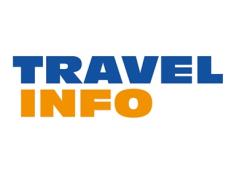ITCs- big revenue generators
A S THE role of the travel
agent changes with the
continuous advent of
new technologies, one model
– the independent travel
consultant – is proving so
successful that an increasing
number of retail agencies
are looking to incorporate it,
or grow the model, in their
businesses.
The Harvey World Travel
Southern Africa business,
says md, Marco Cristofoli,
is set to expand its footprint
with growth plans that include
new affiliation models,
including the ITC model.
“While HWT SA already has
ITCs that contribute strongly
to Harvey’s revenue, we are
in the process of further
expanding and developing
our commercial and value
proposition model to ensure
that the benefits are enticing
and highly competitive in
the market. We are seeking
strong yet sustainable
market share growth and the
broadening of our ITC model
is key to this strategy.” He
adds that the full ITC model
is expected to be rolled out
on July 1.
According to Marco, ITCs
are possibly the fastest
growing revenue generator
in a travel business. “It’s
cost effective for both
the TMC and the ITC and
allows individuals to work
for themselves with a solid
support structure around
them to assist their every
need, thus allowing the ITC
to focus on providing their
customers superior service,”
he says.
“It’s a no brainer, the ITC
model is the way of the
future,” says Tammy Hunt,
eTravel’s operations director.
Jo Fraser, franchise
director for Club Travel, says
consortiums are waking up
to the reality that technology
will make it easier for travel
consultants to become
independent, work from
home, deal with their own
clients and not be employed
by a traditional agency.
“Clearly this is a very
attractive model and many
traditional agencies and
consortiums have recognised
the trend,” says Michelle
Bullmore, Travel Counsellors’
marketing manager and head
of recruitment.
Often the ITC model is a
measure to retain senior
consultants. Michelle says
introducing an ITC model is
often a defensive reaction to
a situation where agencies
are haemorrhaging top senior
staff and must protect their
market share. Dinesh Naidoo,
group operations director of
Serendipity Travel, believes
consortiums are incorporating
ITCs to reduce loss of staff
members to other business
models.
Mike Gray, ceo of Uniglobe
Travel SA, agrees that
consortiums are responding
to a continuous loss of
professionals in the industry
but adds that it is also the
result of travel management
companies driving change
to online and mobile
solutions to meet customer
expectations of more for
less. “It is also being driven
by supplier override deals,”
he adds.
Over the last few years,
says Tshepiso Malele,
SATC’s marketing manager,
the ITC business model has
proved hugely appealing to
travel entrepreneurs wishing
to establish their own
management operations.
“By adopting the ITC
model, barriers to entry are
overcome.”
What it takes
To adequately support its
ITCs, a travel company
needs to have bulk buying
power, access to the best
fares in the market with
24-hour ticketing, help and
support, says Jo. She adds
that companies should also
pay ITCs GDS and override
income as well as extra
commission at source,
without touching any of the
ITCs’ land commission or
feed. Further, there should
be ongoing training on all
products and deals, and
technology that makes an
ITC’s life easier.
According to Dinesh, key
to the success of an ITC is
access to a dedicated team
that is available 24/7 and to
the best travel deals on offer.
He says an ITC should “have
the ability to be independent
but belong to a bigger
organisation that provides
training and support”.
Mike says companies
should provide the same
level of support to an ITC that
they do to consultants fully
employed by them, but at a
lower cost. “People need to
look at all the areas of value
creation required to win and
keep clients and then decide
whether they can actually
provide this for less on an
ongoing basis.”
eTravel regards itself as a
host company and Tammy
says it prides itself on having
the best back office of all ITC
models. She says eTravel has
60 staff members offering
admin support to the ITC
business and catering for
corporate ITCs, leisure ITCs
as well as groups, conference
and incentive ITCs.
Tourvest Travel Services,
says chief sales and
marketing officer, Claude
Vankeirsbilck, has a thriving
ITC business. “We base our
success on the fact that our
offering to ITCs is very flexible
and determined by the
specific needs of the ITC. We
believe ITCs come in various
forms and have tailored
various value propositions to
meet these needs.”
Claude says Tourvest’s ITC
business has grown year on
year both in the number of
ITCs and their sales volumes.
“Their sales volume increase
can be ascribed to the fact
that they predominantly target
medium to small businesses
that look for individualised
service needs and which
have come back from doing
their own travel bookings
on the Internet and quickly
realised the value of what
a travel professional can
deliver.”
According to Tshepiso,
travel companies should
have the ability to provide
a 24-hour, seven-days-aweek
ticketing operation as
agents often have clients
who may require last-minute
bookings or changes. Wellestablished
preferred supplier
relationships are another
prerequisite for the delivery
of value to ITC members,
he says. “In the case of
SATC, we also offer business
development support
(including assistance with
tenders) to all our members.
This ensures that they are
able to access additional
skills they ordinarily might not
have at their disposal.”
Traditional vs ITC
“There is a fundamental
difference in the transactiontraditional
retail business
model and the ITC,” says
Michelle. She says some
combination businesses
say they offer both but the
reality is that what they offer
cannot compare to what a
business focusing solely
on the ITC provides. “Most
companies running both
models aren’t able to offer
full support but rather just
provide the minimum.”
company that does both
cannot be regarded as a
specialist. “You can’t be a
doctor and a dentist and
be successful at both. We
regard ourselves as the true
ITC specialists in SA.”
However, Dinesh believes
the combination model
has an advantage over
companies that focus solely
on ITCs. “The new ITCs that
are emerging still require
that traditional support in
order to maximise their
business. Also they do not
take a huge percentage of
the hard-earned commission
of the ITC.”
Jo says it’s important to
understand the industry and
know from daily experience
what the ITCs face and
need. “Being actively
involved in retail gives you
this invaluable experience.
Specialist ITC companies
tend to sit in their ivory
towers dictating to their
members without knowing
what’s happening on the
ground.”
Do ITCs pose a big fraud risk
TRAVEL companies
with independent travel
consultants are at greater
risk of internal fraud than
traditional travel agencies,
says fraud expert and
director at Mazars Forensic
Services, Christo Snyman.
This is because the
companies have less control
over how the consultants
operate, he says, having
investigated fraudulent
activity ranging from card
fraud and falsifying invoices
to consultants using false
authorisation codes to issue
tickets.
Charmaine van Niekerk,
hr and operations director of
Club Travel, says she agrees
to an extent. “Our business
model is unlike that of most
of our competitors in that
the majority of our 247 ITCs
do not carry our brand and
they also only purchase their
air bookings through us, so
our internal risk only relates
to this.” She adds that Club
Travel processes are tight
and always under review.
To manage internal fraud,
Charmaine says the first step
is choosing ITCs you want
to do business with. “Our
criteria are strict as to their
travel experience and they
also go through stringent
credit and background
checks and sign personal
surety.” Other measures
Charmaine highlights include
not issuing tickets unless
valid payment reflects
in the bank. Club Travel
also obtains credit card
authorisations themselves.
Further, credit cards go
through an external fraud
prevention system.
“In December 2011 we had
a rogue branded franchise
that defrauded a number of
clients and suppliers. He
actually owed Club Travel
nothing, which is largely a
testament to our internal
processes but, that said,
we tightened up on many
potential areas as a result,”
adds Charmaine.
However, eTravel and
Travel Counsellors are wary
of categorising all ITCs
under the same umbrella
and disagree that they are
vulnerable to internal fraud.
Garth Wolff, ceo of eTravel,
says at “face value” he
agrees that ITCs are at
risk because they do not
have the same financial
commitments to the likes of
Iata in respect of bonding, as
is the case with a traditional
travel agent. “This in itself
allows for a loophole in the
system, which if not closed
by the host company allows
for unscrupulous behaviour.
There are many so-called ITC
options out there that are
either becoming the victims
of fraud or soon will be, as
they simply do not have the
resources to manage this
risk or are only chasing the
volumes for overrides. It
is these host companies
that are allowing the ITC to
become labelled with this
fraud issue.”
In the early days of eTravel,
Garth says the company
was “taken for plenty” and
had to write off more than
R2 million. It has since
introduced a Cleared Funds
policy, which means the
consultants don’t actually
manage any cash. “eTravel
collects the money directly
from the client and ensures
that these funds have
cleared before releasing
documents. We then pay the
suppliers for and on behalf
of over 180 ITCs, which
simplifies the supplier’s life
and reduces risk.”
Garth says other ITC
options in the market bypass
this step, making them more
vulnerable to fraudsters.
Mladen Lukic, gm of Travel
Counsellors South Africa,
says travel counsellors don’t
engage in any part of the
financial transaction. He
says this model ensures that
the risks are significantly
reduced. Travel Counsellors
also has a number of
measures in place, including
internal audits done on every
booking on a daily basis,
and has never had a case
of fraud in South Africa.
“There are people in the ITC
space who don’t have these
systems and of course they
are exposed to fraud.”
Christo believes the travel
industry is an easy target for
fraudsters because of the
lack of proper verification
checks of new employees/
ITCs, fraud awareness, card
acceptance training, and
effective control systems.
He says a red flag for any
travel company is an agent’s
credit record. A consultant in
debt is more likely to commit
fraud.
TC invests in new tecnology
TRAVEL Counsellors believes
technological advancements
give its consultants a
competitive edge as they
are better equipped to offer
a faster and more efficient
service.
One of the most recently
introduced tools is the
Travelport Mobile Agent, which
can be installed on a travel
counsellor’s smartphone and
tablet. The product allows
them to make a booking on
the go so they no longer need
to carry a laptop around.
Another tool is rapid re-price.
Consultants no longer need
to call participating airlines to
get an updated quote when
clients’ travel plans change.
The tool allows them to get the
new price, as well as change
fees and additional taxes.
Save the dete!
Serendipity Worldwide Group,
which has over 300 ITC
members, will be holding its
annual conference this year
from August 8-9. Dinesh
Naidoo says members and
partners can look forward to a
“serendipitous weekend”.
The venue for the conference
is the Champagne
Sports Resort in the
Drakensberg.
The benefits of being an ITC...
MANY travel agents looking for
flexibility and more control over
their earnings are going the
ITC route.
eTravel’s Tammy Hunt
says money, autonomy and
flexibility are behind agents
choosing the ITC route. “Being
empowered to run your own
business makes you more
passionate.”
Michelle Bullmore says
consultants’ reasons for
wanting to become an ITC vary
but one of the most common
is to get the reward and
recognition for their efforts and
the opportunity to earn more.
In a traditional agency,
Michelle says agents are
getting higher and higher
targets set for them, their
working hours are getting
extended (including Sundays)
and they aren’t able to give
the client the best service
possible since they need to
get the client in and out as
quickly as possible. She adds
that many agents don’t like
that they have to sell preferred
partners that could be in
conflict with what the client is
actually looking for.
Another common driver,
says Michelle, is striving for
the perfect work/life balance
where they can offer their
clients the very best service
but at the same time be there
for their families, whether that
means helping with homework,
doing the school run or
watching sports events.
She says some agents have
reached a ceiling in their
companies and can’t go any
further. Some have relocated
and found that the salaries in
their new area are lower than
they earned before and others
are tired of the long hours,
traffic and the office politics.
She adds that some owner
managers have decided to go
the ITC model so that they
can follow their own passion
(selling travel and not getting
bogged down by the admin
and staff issues).
Dinesh Naidoo believes the
ability to work flexitime without
the pressure of BSP deadlines
makes the ITC model very
attractive to consultants.
According to Mike Gray,
consultants believe they
provide everything the client
needs and generate all the
revenue, without any need for
back up and support services.
“They therefore believe they
can create a lower cost
alternative for clients and use
this to improve their financial
positions.”
Abigail Pires, group solutions
manager, Sure Travel, says if
an ITC has an existing client
base and wants the flexibility
of their own hours and working
conditions, the ITC model
can be of great appeal to
them. “However, it is very
important for these agents to
still be linked to a reputable
group such as Sure to ensure
they still keep updated with
industry information and
training. Likewise it’s very
important to be linked to a
reputable agency for ticketing
and back office.”
“In this day and age people
want flexibility, whereby they
are in control of their own
businesses and write their
own pay cheque,” says Marco
Cristofoli. He adds that an ITC
model in the travel sector suits
these requirements perfectly.
“Remember this is an industry
that thrives on relationships
and customers follow people
not companies.”
Tshepiso Malele says the
ITCs who are part of SATC are
generally senior consultants
with extensive experience in
the travel business. “Having
worked for larger agencies
for a long time, they then
aspire to owning their own
businesses. Starting up as
an ITC naturally becomes
a feasible way for senior
consultants or managers to
achieve this goal.”
Jo Fraser says: “If you are
good at what you do and have
a local client base you can
earn a lot of money and have
a better quality of life working
for yourself.”
How to choose
With the growing number
of companies offering ITC
opportunities, how does an
aspiring ITC choose?
“Firstly, each prospective ITC
must decide on the business
model they want to build,”
advises Michelle.
She says some of the things
to consider include whether
there is a global community,
the support offered,
technology, equipment, costs,
deals, marketing, business
development, training, brand
image, earning potential,
supplier deals and financial
protection plans. “For all these
points they need to look at the
costs. Does the host provide
it or does the host simply
assist?” says Michelle.
Jo advises consultants not
to sign an agreement that ties
them up for years.
She also says consultants
shouldn’t choose a company
that will take 30% or 40% of
their entire income and should
opt for flexibility, such as
choice of doing their accounts
or not, or choice to be branded
or not.
“One shoe does not fit all
so one has to be flexible and
understand the ITC’s needs.”
Dinesh believes key points
are free accessibility to a
GDS, getting paid commission
upfront and having access to
rates and deals that are on a
par with or better than what’s
available in the market.
Factors to consider, according
to Tammy, include how long
the host company has been
in business, the size of its
annual income, its back-up
admin support and after-hours
emergency contact. Tammy
says agents should speak to
existing ITCs at the company
as well as its suppliers before
making a decision.
Mike says consultants need
to consider whether the model
is sustainable in the long
run. “Being lured in on the
basis that everything is free
and there are no contracts is
unsustainable and probably
not something one should bet
your livelihood on.”
Myth : ITC only work from home
A COMMON misperception
is that most ITCs work from
home. “Although most of
our travel counsellors do
work from home, we have a
number of very successful
ones who work from office
premises,” says Michelle
Bullmore.
She adds however, that
there are many benefits to
working from home. “Firstly
there are no office rentals so
it keeps your costs low. You
don’t get any office walk-ins,
often known in shopping
centres as the time wasters.
About 80-90% of every
booking turns into a sale.
There is no security risk… a
bricks and mortar shop can
be a target for robbery.” She
says there are tax benefits to
working from home and no
time wasted in traffic.
Serendipity Travel, says
Dinesh Naidoo, gives ITCs
the choice. “Both models are
working fine. It is up to the
individual as to whether he
prefers to work from home or
an office. We have seen huge
results when an individual is
given a choice rather than
being dictated to.”
eTravel offers its ITCs
space at its Johannesburg
and Cape Town offices.
Tammy Hunt says the
financial requirements for
those at eTravel’s offices and
those who work from home
are exactly the same. “It just
allows those ITCs who want
to work from a professional
office environment to operate
within our premises.” She
says around 10% of eTravel’s
ITCs are based at their
offices. “The majority source
their own option for office
space, be it at home, their
corporate offices or their own
leisure shops.”
Etravel to launch ticket-only product
eTRAVEL will be launching
a new division later this
year called Just A Ticket.
While eTravel did not
want to give too many
details away, Tammy Hunt
explained that with
Just A Ticket there will
be “no contract, no
deposit, no admin, which
includes no invoice –
therefore nothing else
other than a ticket”.
She said agents would
simply use eTravel’s tool
to book a ticket and would
enjoy the full support other
ITCs have.
Did you know
Club Travel has reached in excess of 300 ITC and partner agencies.
It has also won the World Travel Award for Africa’s Leading Travel
Agency seven times in a row.












